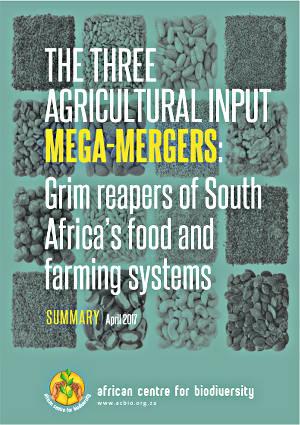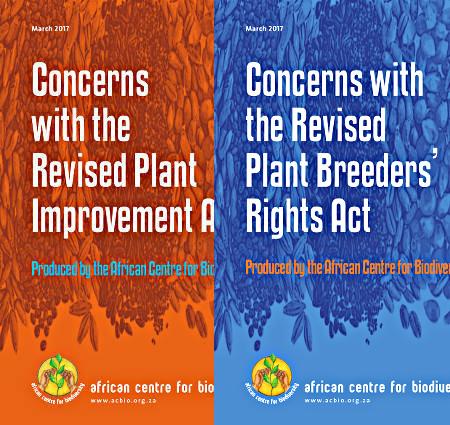Latest Resources

9 February 2018
Press Release: No benefit to imminent release of risky GM mosquitoes in Burkina Faso
Genetically modified (GM) “male-sterile” mosquitoes are due to be released in Burkina Faso this year by the Target Malaria research consortium. However, Target Malaria acknowledges that there are no benefits to the proposed GM mosquito release. The project is set to apply for a permit to make an open release of 10,000 GM Anopheles gambiae […]

8 February 2018
Briefing Paper: GM Mosquitoes in Burkina Faso
In this briefing paper ACB, TWN and GeneWatch UK discuss that genetically modified (GM) mosquitoes were exported from Imperial College in London to Burkina Faso in November 2016. They are currently in “contained use” facilities in Bobo-Dioulasso, and are being used in experiments by a research consortium called Target Malaria. However, these GM mosquitoes are […]

1 September 2017
WEMA Project shrouded in secrecy: open letter to African governments to be accountable to farmers...
The Water Efficient Maize for Africa (WEMA) project promises to develop drought tolerance in maize for the benefit of small holder farmers, but is really a project designed to facilitate the spread of hybrid and genetically modified (GM) maize varieties on the continent. WEMA involves five African countries: Kenya, Mozambique, South Africa, Tanzania and Uganda. […]

10 August 2017
The Water Efficient Maize for Africa Project: Profiteering not Philanthropy
This scoping study aims to appraise, to the best of our knowledge, the current status of the roll-out of a public- private partnership which forms the the Water Efficient Maize for Africa (WEMA) project in five African countries: Kenya, Mozambique, South Africa, Tanzania and Uganda. The partnership is between the African Agricultural Technology Foundation (AATF), […]

31 July 2017
No Safe Limits for Toxic Pesticides in Our Foods
On 7 April 7 2017 the South African government issued draft amendments to its regulations governing the legal limits for pesticide residues on food crops. The proposed amendments expose the gaps in regulations to date, despite the cultivation of herbicide-tolerant GM crops for almost two decades. As the African Centre for Biodiversity (ACB) team researched […]

18 July 2017
GM Cotton push in Swaziland: Next target for failed Bt cotton
This paper examines the application of the Bt cotton field trials currently underway in Swaziland. This is situated within the broader wave of GM application and trials across the continent, along with the weakening of national biosafety regulations, as part of the GM push across Africa. This paper is based on research on the Swaziland […]

5 July 2017
Decolonising Food Systems and Sowing Seeds of Resistance
The briefing paper challenges us to reclaim our connection to seed, food and each other and to engage in new food politics. Download pdf.

25 May 2017
South Africa and 2,4 D stacked GM maize: biosafety, socio-economic risks
In 2015–2016 Dow AgroSciences Southern Africa (Pty) Ltd performed field trials on maize tolerant to 2,4-D (event DAS-87078-9) and stacked varieties carrying not only 2,4-D tolerance, but also glyphosate tolerance and/or Bt insectidal toxins. The trials are on going in 2017. The trials follow the approval for import for food, feed and processing in 2012, […]

11 April 2017
Mega-mergers: 3 giant corporations controlling South Africa’s food and farming systems
This briefing deals with the three mega mergers taking place in the agriculture sector as Dow Chemical and DuPont are set to merge, China National Chemical Corporation (ChemChina) is to acquire Syngenta and Bayer is to acquire Monsanto. The proposed Bayer-Monsanto merger will give control of almost 30% of the world’s commercial seed market and […]

27 March 2017
Briefings on the revision of South Africa’s seed laws: Entrenching an unjust and unsustaina...
As we continue to engage and mobilise around the seed policy and legislation revisions, ACB has developed 2 easy-to-read documents outlining the central concerns and possible alternative directions for seed policy to move in South Africa. Despite the public interest to support an equitable seed system, the Plant Improvement and Plant Breeders’ Rights Bills, create […]
